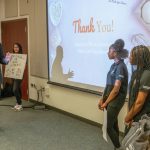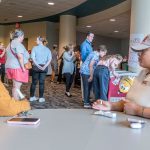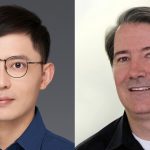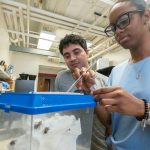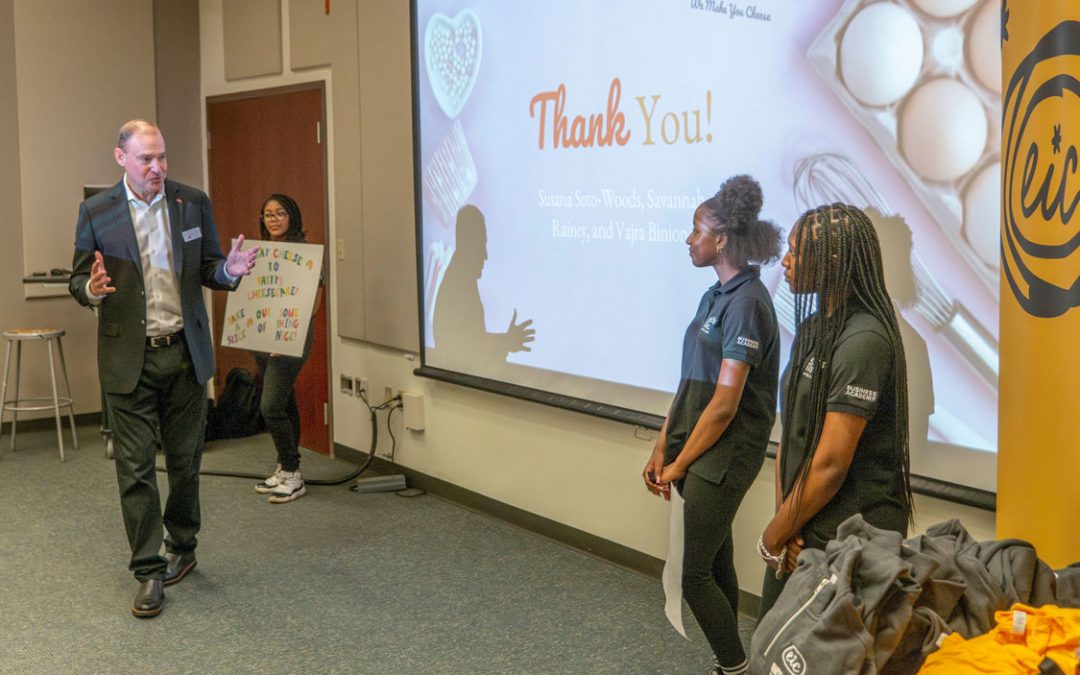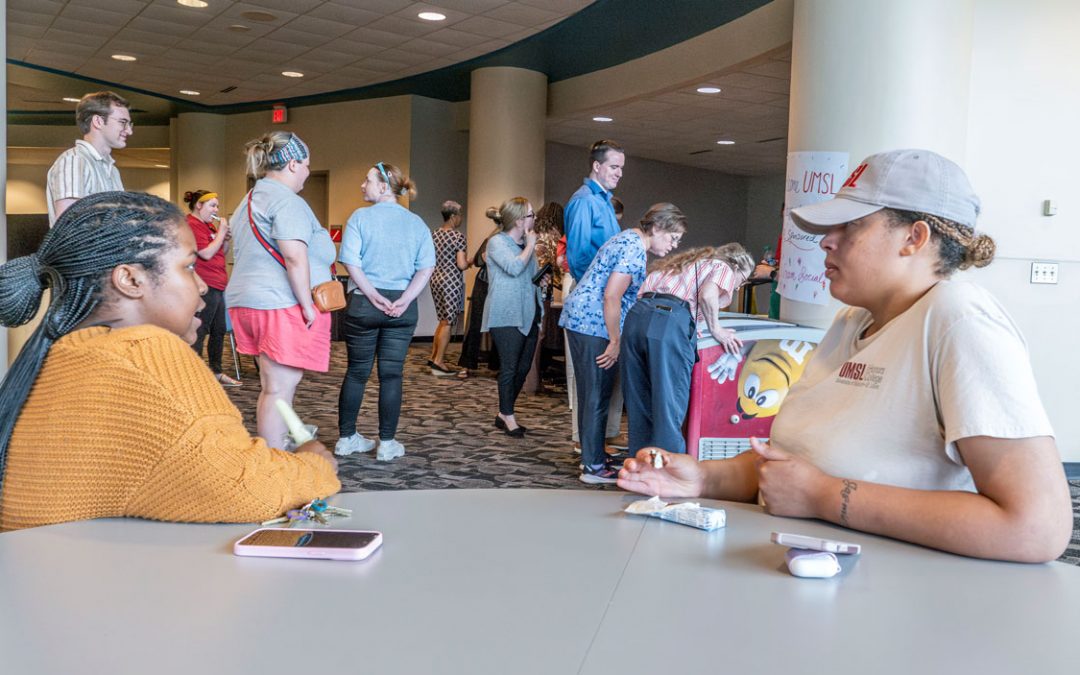
Vivek Singh, an assistant professor in the Department of Information Systems and Technology at UMSL, has studied different aspects of cloud computing including cost, security and operations and has expanded his research to incorporate machine learning as applied in a cloud environment. (Photo by August Jennewein)
(Updated on Dec. 9, 2021): Vivek Singh had been working as a software engineer in research and development at Alcatel-Lucent in India when he decided to pursue an academic career.
He left his native country to become a research assistant in the School of Computing at the National University of Singapore and eventually found his way to the doctoral program in information systems at the University of South Florida’s Muma College of Business.
But even as he threw himself into academic literature while earning his PhD and landed a job as an assistant professor in the Department of Information Systems and Technology at the University of Missouri–St. Louis, Singh has remained committed to trying to tackle real-world business problems.
“Information systems is understanding interactions among organizations, people, and information technology,” Singh said. “It’s about how we can apply information technologies to solve business problems. That’s what attracted me. I had an information technology background from my master’s program and from my bachelor’s program. I really like working on some practical problems coming from industry. Take them and see how we can solve them with academic rigor.”
Singh did his doctoral research in the area of cloud computing and developed a secured cloud file system with faculty advisors Kaushik Dutta and Balaji Padmanabhan. The University of South Florida filed a patent application for the work in 2018, and it received final approval from the United States Patent and Trademark Office in July.
The idea for the invention originated after Singh read reports of instances of data leaks from cloud servers that were caused by security misconfigurations and human error. Personal data from a reported 6 million Verizon customers leaked out online, exposing customer phone numbers, names and some PIN codes, in 2017.
The secured cloud filing system Singh and his co-inventors created is designed to protect users’ data in case of accidental leaks occurring in a cloud computing environment.
As Singh explained, the system makes use of cryptographic hash functions along with concatenated random numbers for each folder name to provide protection against the vulnerability of folders stored in the cloud.
Singh also worked with Padmanabhan and then-fellow doctoral candidate Utkarsh Shrivastava, now an assistant professor at Western Michigan University, on another project to develop systems and methods for expert-assisted classification. They developed the system in a health care context, with AI technology being used to help triage patients – assigning them classifications such as mild, moderate and severe.
“Whenever we do such classification using AI, there is a concern that it should be reviewed by an expert,” Singh said. “Now the question that comes is then what is the best way to include the expert with the AI algorithm?”
Singh and his collaborators answered that question with the systems and methods they created. The University of South Florida filed a patent application for the work in July 2019, and the United States Patent and Trademark Office granted final approval for the patent on Oct. 5.
The patent has applications outside the health care field and can be used anytime human expertise is required to review decisions being made by AI.
Both projects fit within Singh’s broad research interests.
“My core research strength or area is how to apply data-driven techniques to make cloud adoption faster,” he said. “When organizations adopt cloud computing, they have challenges related to cost. They have challenges related to operations. They have challenges related to security.
“I have research published addressing how organizations can reduce their cost in a cloud computing environment, how they can make their adoption more secure when they move to the cloud – how they can protect from vulnerabilities. In terms of operations, I have looked at how organizations can see if they’re efficiently using the cloud or not.”
Singh joined the UMSL faculty in 2019, the same year he completed his PhD. He was looking for a university with a good research program and that balanced it with a strong focus on teaching and service, and he said he found that at UMSL, both in the Department of Information Systems and Technology and the College of Business Administration more broadly.
“I have amazing colleagues, who do really good research, and they are fantastic teachers,” Singh said. “We really learn a lot from senior faculty as well as from colleagues who are doing amazing work.”
Singh has expanded his research to incorporate machine learning as applied in a cloud environment. He’s been working with Professor Dinesh Mirchandani, chair of the Department of Information Systems and Technology, and Professor Yiuman Tse, endowed chair in the Department of Finance and Legal Studies, on a project with a leading finance management company based in St. Louis. They’re investigating how machine learning platforms can be used to solve problems in personal finance management.
“Working with companies, we have to balance or excel at work that has high academic rigor, because we have to publish in academic outlets,” Singh said. “At the same time, there should be high practitioners’ value so that organizations see that value and they collaborate with us. That balance – making sure there is both high research and high practitioners’ value – is a challenging thing for academic faculty.”




